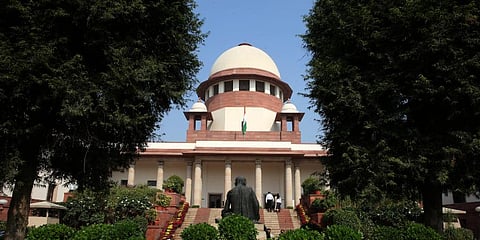

NEW DELHI: Noting that once a body is buried, it should not be disturbed, the Supreme Court on Monday rejected a plea by the father of Amir Magrey who was killed in Hyderpora encounter to exhume the body for last rites.
Upholding Jammu and Kashmir HC’s order of allowing the family to perform religious rites but refusing to hand over the body to the family a bench of Justices Surya Kant and JB Pardiwala said that the body was buried with all honours.
“After a body has been buried it is considered to be in the custody of law thus this is not a matter of right. Once buried a body should not be disturbed. The court will not order a body unless there is. Respondents have stated on oath that the body of the deceased was buried with all honours. Prayers were also performed. There is nothing to indicate that the deceased was not given a decent burial. The court should not decide the matter considering the sentiments and is to be determined as per rule of law. Order of the HC is just, proper and equitable,” the bench observed while dismissing the appeal.
Court’s order had come in a plea by father who had approached SC challenging HC’s verdict to the extent that it had refused to hand over Amir’s body.
Earlier, in June 2022, the Division bench of Justice Ali Mohammad Magray and Justice Wasim Sadiq Nargal had stayed the operation of the single judge's order directing authorities to exhume Amir's body. The single judge had also directed the authorities to pay a compensation of Rupees 5 Lakh if the body was highly putrefied and not in a state to be delivered back. The Single Judge had also directed the respondents to make appropriate arrangements for transportation of the dead body to the village of the petitioner in accordance with the religious beliefs of the deceased.
Aggrieved of the single bench order the UT administration had challenged the same before the division bench which as an interim relief had stayed the operation of the single bench judgement till the next date of hearing.
Challenging the interim order in an SLP before the Supreme court the father of the deceased had submitted that he was not pressing for the relief of exhumation of the body and was only pressing for the performance of last rights and compensation. The Supreme court had thereafter directed the High court to decide the matter within a week in terms of the change of the stand the petitioners had undergone.